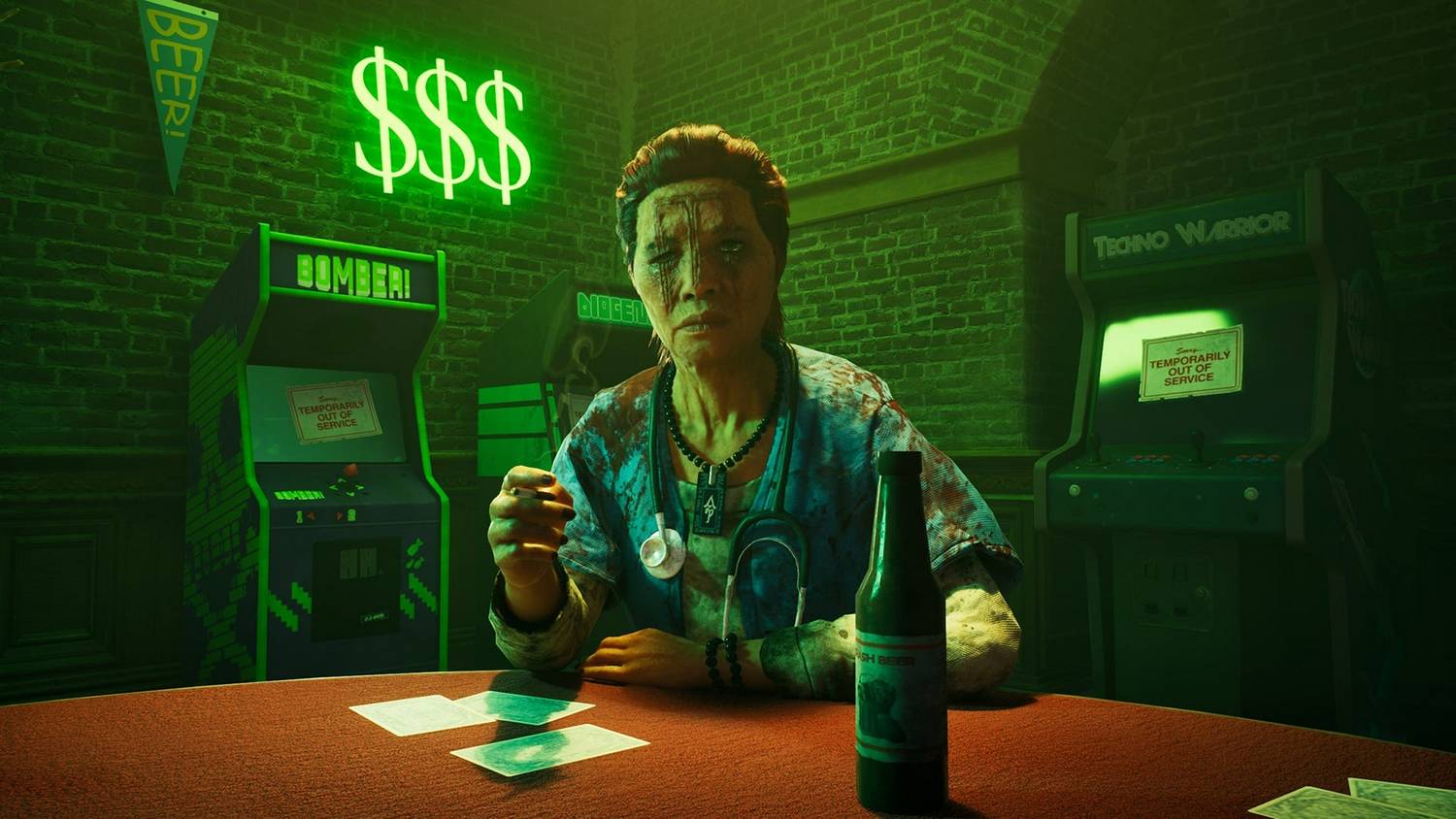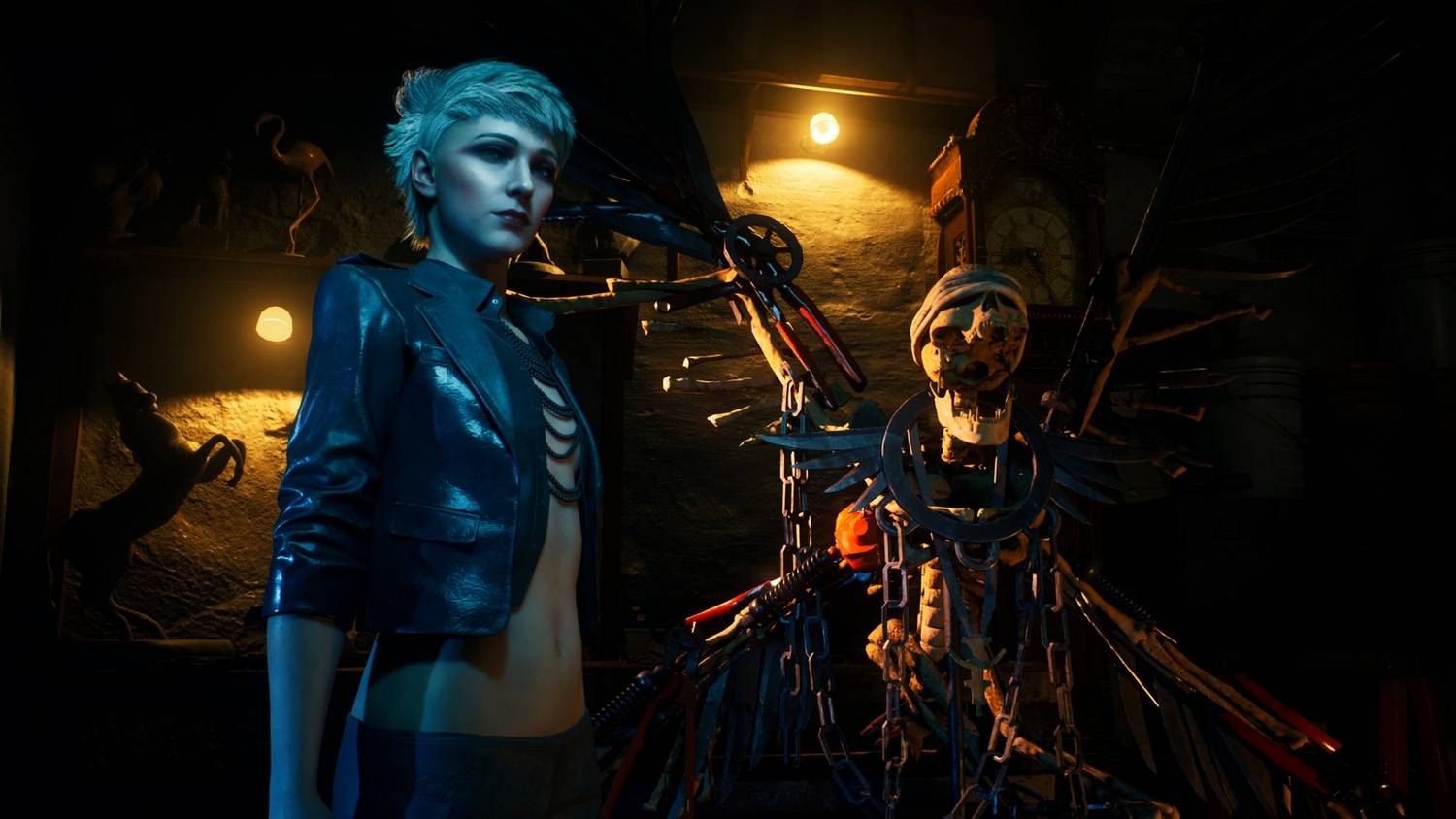A Strategic Expansion or Content Segmentation? The Chinese Room Defends Bloodlines 2 Paywalled Clans Amidst Fan Outcry
Popular Now
 Rust
Rust
 Genshin Impact
Genshin Impact
 FIFA 23
FIFA 23
 Grand Theft Auto V
Grand Theft Auto V
 Schedule I
Schedule I
 Call of Duty
Call of Duty
 CarX Street
CarX Street
 NBA 2K24
NBA 2K24
 Warframe
Warframe
 EA SPORT FC 25
EA SPORT FC 25  The long-awaited sequel, Vampire: The Masquerade – Bloodlines 2, found itself at the epicenter of a heated debate following the revelation that two key vampire clans—the elegant Toreador and the shadowy Lasombra—were initially slated to be locked behind a day-one DLC paywall. Developer The Chinese Room has stepped forward to defend this controversial decision, asserting that the extra clans represent an expansion of their original scope, driven by player demand and an evolving development process. This news has reignited the perennial conversation around game monetization, the value proposition of Premium Edition content, and the core expectations of a fan base that has waited over two decades for this sequel.
The long-awaited sequel, Vampire: The Masquerade – Bloodlines 2, found itself at the epicenter of a heated debate following the revelation that two key vampire clans—the elegant Toreador and the shadowy Lasombra—were initially slated to be locked behind a day-one DLC paywall. Developer The Chinese Room has stepped forward to defend this controversial decision, asserting that the extra clans represent an expansion of their original scope, driven by player demand and an evolving development process. This news has reignited the perennial conversation around game monetization, the value proposition of Premium Edition content, and the core expectations of a fan base that has waited over two decades for this sequel.
The initial plan positioned the two clans as separate purchases or part of the higher-tier $89.99 Premium Edition, which drew immediate and substantial backlash from the World of Darkness community. Fans argued that clans—the foundational factions that define character and gameplay in the Vampire: The Masquerade universe—should be integral to the base game, echoing the robust selection found in the 2004 cult classic. The outcry centered on the perceived segmentation of essential role-playing content, a practice often viewed as predatory in the current AAA gaming landscape.
The Developer’s Justification: Exceeding the Initial Scope
In response to the intense community scrutiny, a representative from The Chinese Room, specifically Narrative Director Ian Thomas, offered a detailed explanation. The defense hinges on the extensive and turbulent development history of Bloodlines 2, which saw a complete shift in developers—from Hardsuit Labs to The Chinese Room—and multiple delays. This protracted development cycle, according to the studio, led to a continuous process of “fattening” the game’s scope.
- Core Argument: “We have been expanding it from where we originally planned to land it,” stated Thomas, implying that the addition of the Lasombra and Toreador clans, with their associated powers (Disciplines) and unique narrative content, went beyond the budget and design scope established when the studio took over the project.
- Player Feedback Integration: Thomas noted that development has involved “huge cycles” of responding to player feedback, early alpha testing, and internal requests from the publisher, Paradox Interactive. This iterative process, they claim, led to a “massive amount of story content and features” being added.
- The Financial Reality: The implication is that the work required to fully integrate these popular and complex clans—including unique dialogue, skill trees, and combat animations—into the final, heavily revised product necessitated a separate revenue stream to recoup the significant additional development costs and satisfy the long-standing fan requests for more choice.
This justification attempts to reframe the content from “ripped-out core features” to “value-added expansion.” It’s a common strategy in game publishing, but in the context of a highly-anticipated RPG where character choice is paramount, it’s a tightrope walk between managing investor expectations and respecting the player base’s desire for a complete initial experience.
 Community Reaction and the Reversal
Community Reaction and the Reversal
Despite The Chinese Room’s attempt to rationalize the decision, the community’s sentiment remained overwhelmingly negative. Fans drew comparisons to other successful RPGs, noting that paywalling core character classes is an anomaly in the genre. For a franchise built on faction dynamics and multiple playthroughs, restricting two major clans—one of which, the Toreador, is one of the most iconic and politically relevant in the lore—was viewed as a fundamental misstep in delivering a true spiritual successor to the original.
The financial impact of this backlash was likely a major factor in the subsequent reversal. Sensing the long-term damage to the game’s launch and reputation, Paradox Interactive, the publisher, eventually capitulated. Just weeks after the initial defense, the publisher announced that both the Lasombra and Toreador clans would be included in the standard base game at launch. White Wolf Executive Vice President and Bloodlines 2 Executive Producer Marco Behrmann acknowledged the community’s “frank feedback,” stating that it “made it clear: Lasombra and Toreador belong in the base game, so that is what we are doing.”
This swift adjustment, while praised, underscores the intense pressure and high stakes surrounding the release of a title with such a troubled production history and dedicated following. The adjustment has shifted the post-launch monetization focus to two new story packs—Loose Cannon and The Flower & the Flame—available in the Expansion Pass for a $34.99 purchase or as part of the Premium Edition. These story packs promise to further expand on the main narrative in 2026, offering new content that is more traditionally aligned with post-launch DLC expectations.
Analyzing the Monetization Strategy and SEO Implications
The controversy provides a significant case study in modern video game economics. The desire to leverage highly sought-after content—clans with deep lore and unique gameplay—for higher average revenue per user (ARPU) via premium SKUs clashed directly with fan expectations for the core RPG experience. The key takeaway for developers and publishers in the high-stakes Game Development arena is clear: for a story-driven RPG, especially one with a revered legacy, core gameplay mechanics and character choice must be considered sacrosanct.
From an SEO perspective, the keywords surrounding this event are highly valuable due to the game’s cult status and the persistent media coverage of its developmental woes:
- High-Value Keywords (CPC/Search Volume): Vampire: The Masquerade – Bloodlines 2, The Chinese Room, Paradox Interactive, Paywalled Clans, Day-One DLC, Premium Edition, Vampire Clans, Lasombra, Toreador.
- Topical Relevance: The news cycle is dominated by discussions of game monetization, DLC strategy, AAA gaming, and the complexity of developing a long-delayed Action RPG like Bloodlines 2.
The studio’s defense, while perhaps technically accurate regarding their increased workload, failed to recognize the emotional and cultural value the community places on the clans. The reversal, however, is a victory for consumer advocacy and a tacit admission by the publisher that not all content that costs extra to produce should be paywalled at launch, particularly when it defines the fundamental replayability of a Role-Playing Game (RPG). The focus now shifts to the final quality of the base game, slated for an October 2025 release, and whether the extensive ‘fattening’ has resulted in a title worthy of the long wait and the storied legacy of the Masquerade.










 Community Reaction and the Reversal
Community Reaction and the Reversal